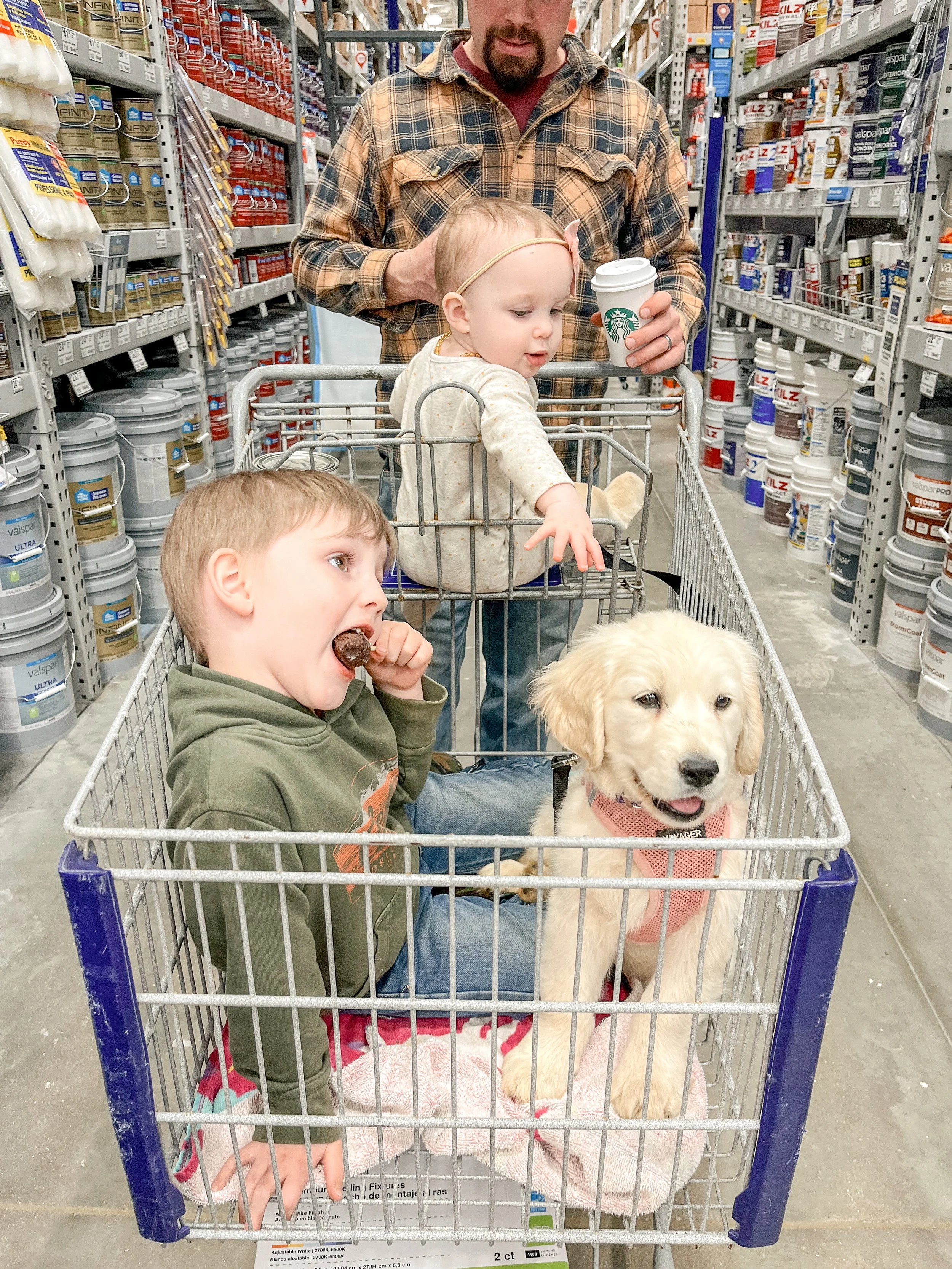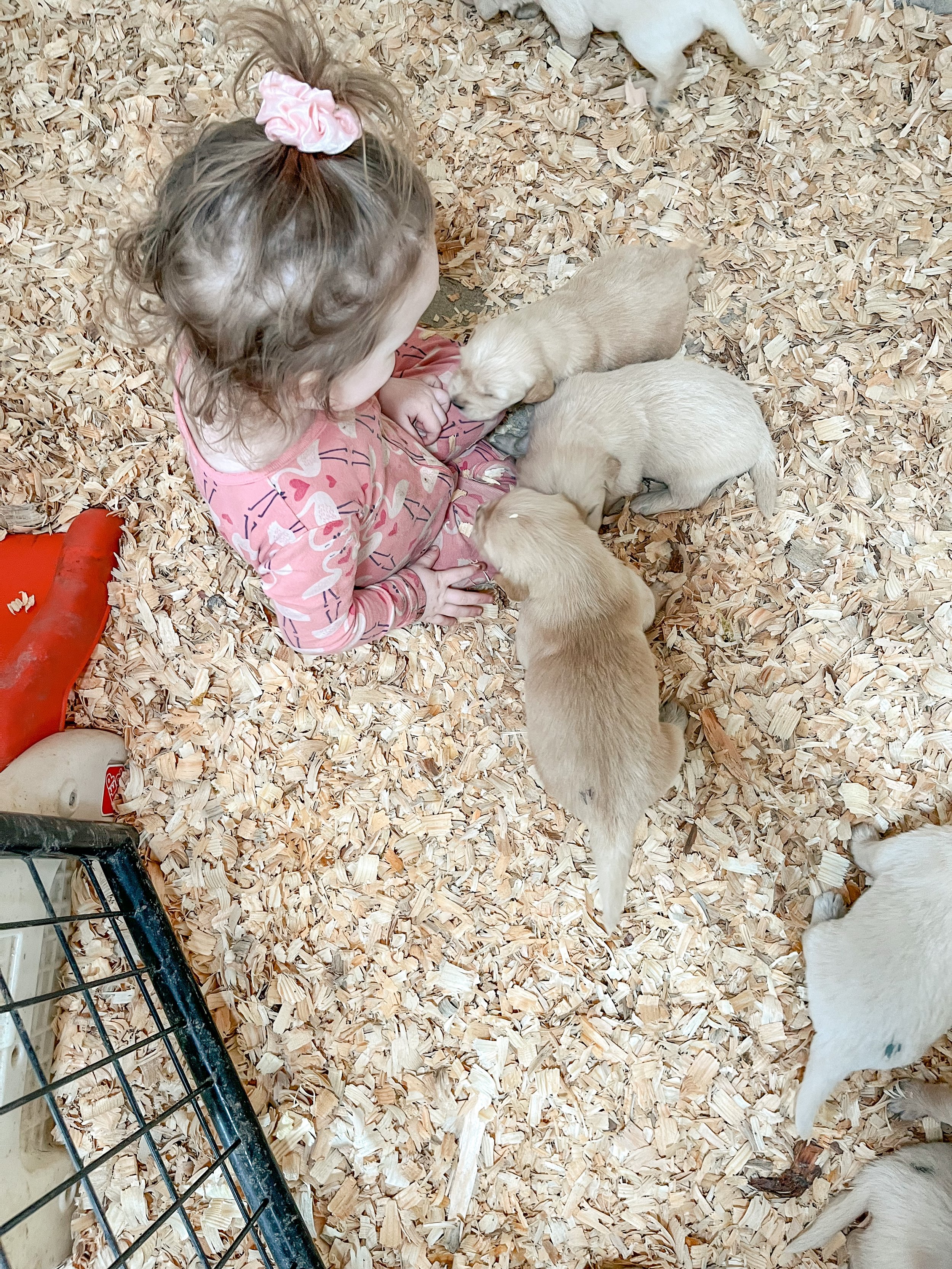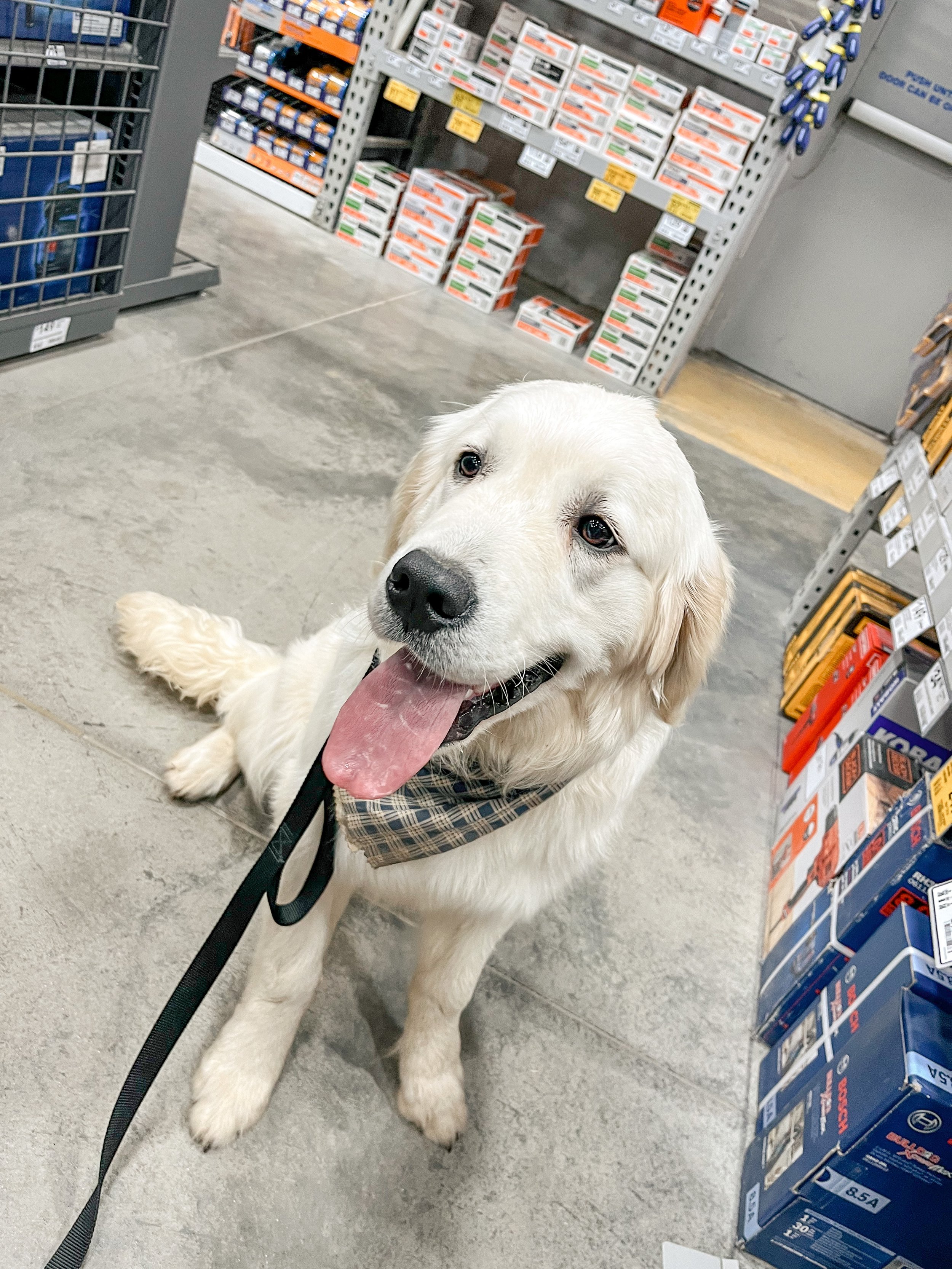The Importance of Early Socialization in Family Dogs (Why Those Early Weeks Matter)
Bringing home a new puppy is an exciting time for any family. The snuggles, the puppy breath, the tiny paws—it’s a special season filled with joy. But beyond the adorable moments, those first weeks of a puppy’s life play a crucial role in shaping their temperament and behavior for years to come. Early socialization is one of the most important aspects of raising a well-adjusted family dog, and it’s something that responsible breeders and owners should prioritize from day one.
What is Early Socialization?
Early socialization refers to the process of exposing puppies to a variety of people, environments, sounds, and experiences in a safe and positive way. This critical period occurs between 3 to 16 weeks of age, when puppies are the most impressionable. During this time, their brains are rapidly developing, and they are forming connections that will influence their confidence, adaptability, and overall demeanor.
Without proper socialization, puppies can grow up to be anxious, fearful, or overly reactive to new situations. For a family dog—especially one growing up in a busy household with children—this foundation is key to ensuring a calm, friendly, and adaptable companion. Puppies who miss out on early socialization may struggle with everyday encounters, such as meeting strangers, hearing loud noises, or adapting to new environments. This can lead to fear-based aggression, excessive barking, or nervous behaviors that make daily life more stressful for both the dog and the family.
The Breeder’s Role in Early Socialization
A puppy’s socialization journey starts long before they ever leave for their new home. This is why choosing a breeder who prioritizes early socialization is so important. From birth, puppies should be gently handled, introduced to new surfaces, exposed to household sounds, and gradually introduced to different people.
At our home, we use a structured socialization approach that includes:
Daily Handling: Puppies are touched, held, and interacted with from day one to build trust and resilience.
Household Exposure: Puppies hear everyday sounds like vacuum cleaners, dishwashers, and doorbells to prevent noise sensitivity.
Novel Surfaces & Objects: Introducing different textures (carpet, tile, grass, gravel) and objects helps puppies grow into confident dogs.
Early Positive Experiences with Children: Because we raise our puppies in a family environment, they are accustomed to the sights and sounds of kids—helping them transition seamlessly into their new homes.
Introduction to Safe, Friendly Adult Dogs: Learning appropriate dog-to-dog social skills is crucial for a well-mannered family pet.
Mild Challenges & Enrichment Activities: Exposing puppies to tunnels, small obstacles, and mild problem-solving activities helps them develop confidence and curiosity.
Early Potty Training & Crate Introduction: Familiarizing puppies with crates and starting a simple potty-training routine helps with a smoother transition to their new homes.
By the time our puppies leave for their forever homes, they’ve already had weeks of positive exposure that set the stage for a smooth transition. This head start helps prevent common behavior problems such as separation anxiety, excessive fearfulness, and hyperactivity.
How Families Can Continue Socialization
Once you bring your puppy home, socialization should continue in a thoughtful and structured way. Here are some practical tips to keep the momentum going:
Introduce New Experiences Gradually – Expose your puppy to new sights, sounds, and places, but always ensure they feel safe and supported.
Encourage Positive Interactions with People – Have your puppy meet different people, including children, men with beards, and people wearing hats or sunglasses.
Enroll in a Puppy Training Class – A well-run puppy class provides a safe space for socialization and basic training.
Take Short, Positive Outings – Visits to a friend’s house, short car rides, and walks in different locations build confidence.
Make Socialization Fun – Always use praise and treats to reward curiosity and confidence.
Introduce Everyday Household Activities – Allow your puppy to observe and interact with daily activities like vacuuming, cooking, and guests arriving.
Expose to Different Weather Conditions – Let your puppy experience light rain, wind, and different temperatures in a controlled manner to prevent weather-related anxieties.
Gradual Exposure to Grooming & Vet Visits – Get your puppy used to being handled for brushing, nail trimming, and gentle ear cleaning to avoid fear of grooming.
The Long-Term Benefits of Early Socialization
When puppies are properly socialized, they grow into well-rounded adult dogs who handle change and new situations with ease. A well-socialized dog is:
Confident – Less likely to develop fear-based behaviors.
Friendly & Well-Mannered – More comfortable around people and other animals.
Adaptable – Handles new experiences, travel, and change without stress.
Safer to Have Around Kids – A puppy raised around children from the start is more patient and gentle.
More Relaxed in Public Spaces – Dogs who have had positive experiences in different settings are more enjoyable to take on outings.
Less Likely to Develop Behavioral Issues – Proper socialization reduces the chances of anxiety, reactivity, and aggression.
For families, investing in early socialization means fewer behavioral challenges down the road and a much smoother experience raising a puppy. Dogs who have been well-socialized are not only easier to live with but also bring more joy and companionship to their families.
Choosing a Breeder Who Does it Right
If you’re looking for a Golden Retriever puppy, be sure to choose a breeder who understands the importance of early socialization. A responsible breeder will have a structured plan in place to give puppies the best possible start in life.
We take this process seriously, ensuring that every puppy we raise is set up for success as a family companion. If you’re considering adding a Golden Retriever to your home, we’d love to connect and answer any questions about our breeding program and how we raise our puppies.
A well-socialized puppy is a joy to raise and a wonderful addition to any family. By prioritizing socialization from the start, both breeders and new puppy owners can set their dogs up for a lifetime of happiness and companionship.
Interested in learning more? Join our newsletter for puppy updates, training tips, and all things Golden Retriever!
Here’s Some of Our Favorite Puppy Products!
https://www.amazon.com/hz/wishlist/ls/A6ZWHCEZ9TVF?ref_=wl_share






